1 - Expected post-Chinafy results
What is Heroku? Does Heroku work in China?
What is Heroku?
Heroku is a cloud-based platform that enables developers to build, deploy, and manage applications quickly and easily. The platform was founded in 2007 and acquired by Salesforce in 2010. Heroku has gained significant popularity over the years due to its ease of use and powerful features.
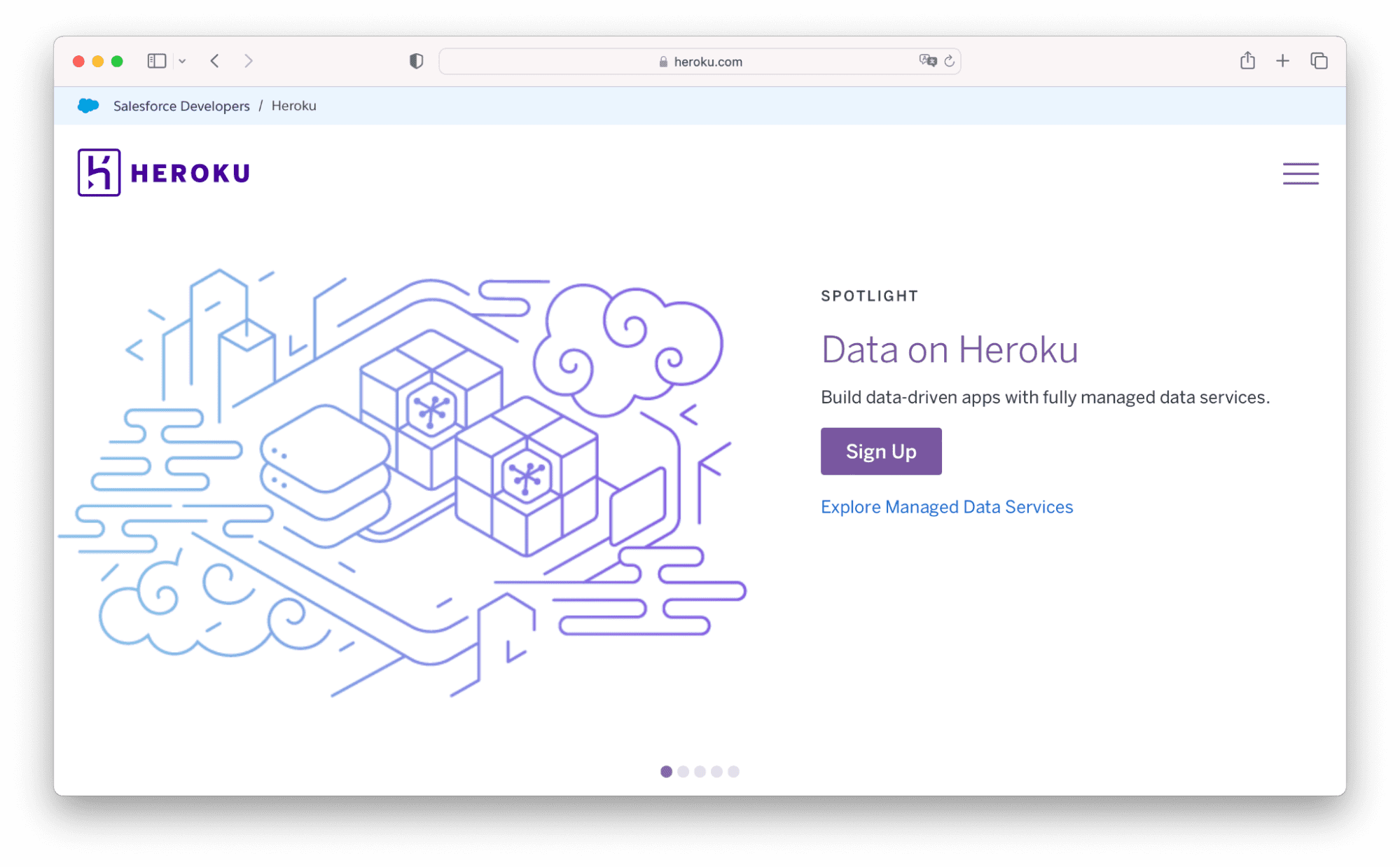
Heroku’s official website (Source: Heroku)
Easy Deployment: Heroku makes it easy to deploy applications. Developers can deploy their applications directly from their Git repositories, using Heroku's command-line interface (CLI) or web dashboard.
Scalability: Heroku allows developers to easily scale their applications up or down as needed. Developers can scale their applications horizontally by adding more dynos (Heroku's name for a container that runs a web process) or vertically by increasing the size of the dynos.
Add-ons: Heroku offers a wide range of add-ons that can be easily integrated into applications. Add-ons include databases, caching services, messaging services, monitoring tools, and more.
Continuous Integration/Continuous Deployment (CI/CD): Heroku offers seamless integration with popular CI/CD tools, such as GitHub Actions, CircleCI, and Travis CI, allowing developers to automate their build and deployment processes.
Heroku Private Spaces: Heroku Private Spaces allows developers to deploy their applications in a private, isolated network. Private Spaces provide increased security, isolation, and network control.
Heroku Enterprise: Heroku Enterprise offers additional features and support for large-scale enterprise applications, such as advanced monitoring, compliance, and dedicated support.
How do Heroku websites generally perform in China?
Heroku websites generally perform well in China, but they can experience technical challenges that make them appear broken or unusable for Chinese users. These challenges can include:
Code-based incompatibility issues
Slow loading times caused by infrastructure-based issues
Official inaccessibility from China for some websites (see an example below)
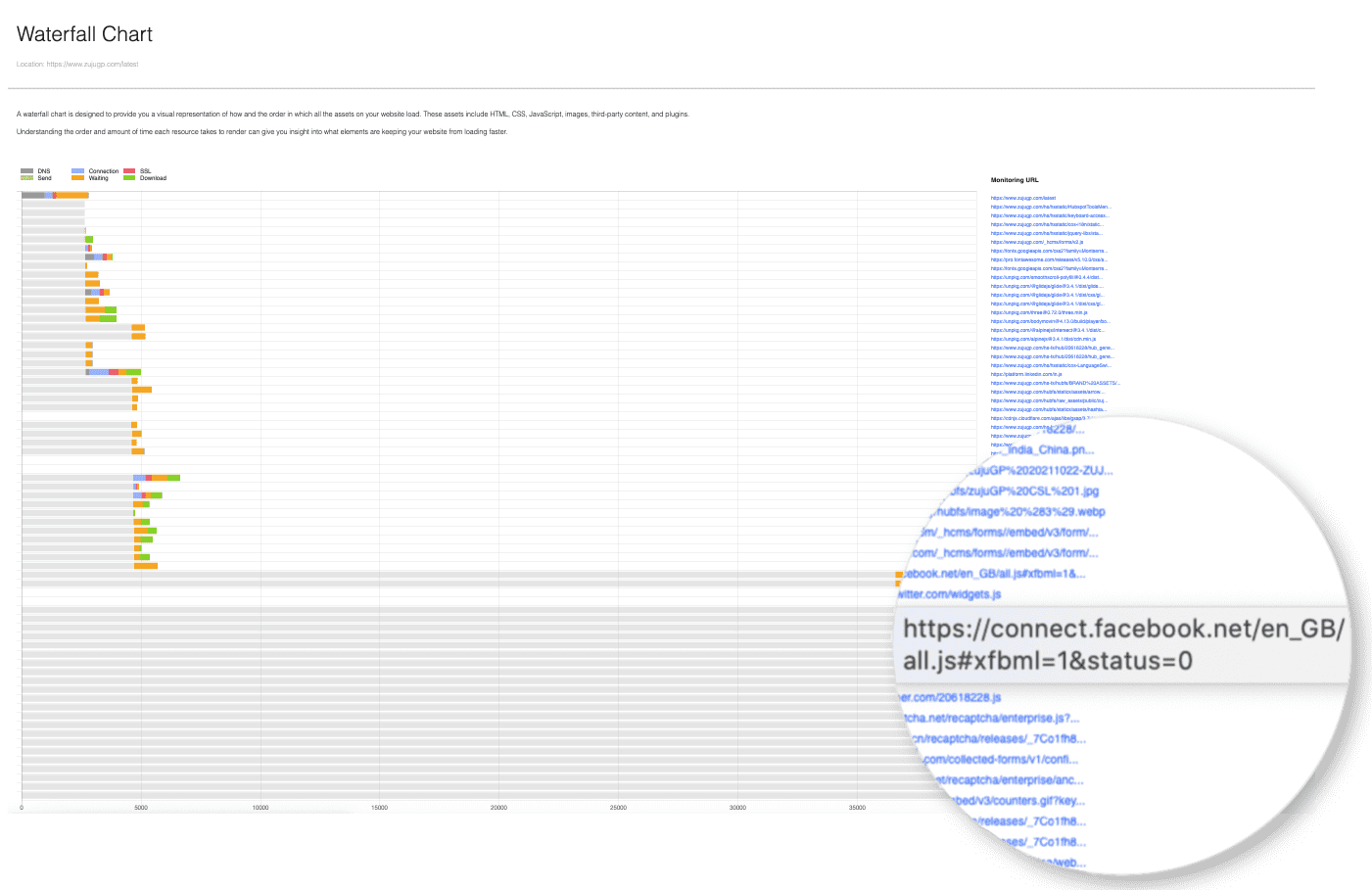
Third-party resources such as Facebook trackers trail in 30+ seconds on the browser in China (Source: Chinafy)
Most websites that appear inaccessible in China are actually suffering from technical challenges when loading from China.
More about why websites don't work in China
What is Chinafy and how does the platform work with Heroku websites?
Chinafy is a China website optimization and compatibility platform helping address performance and deliverability issues for websites in China.
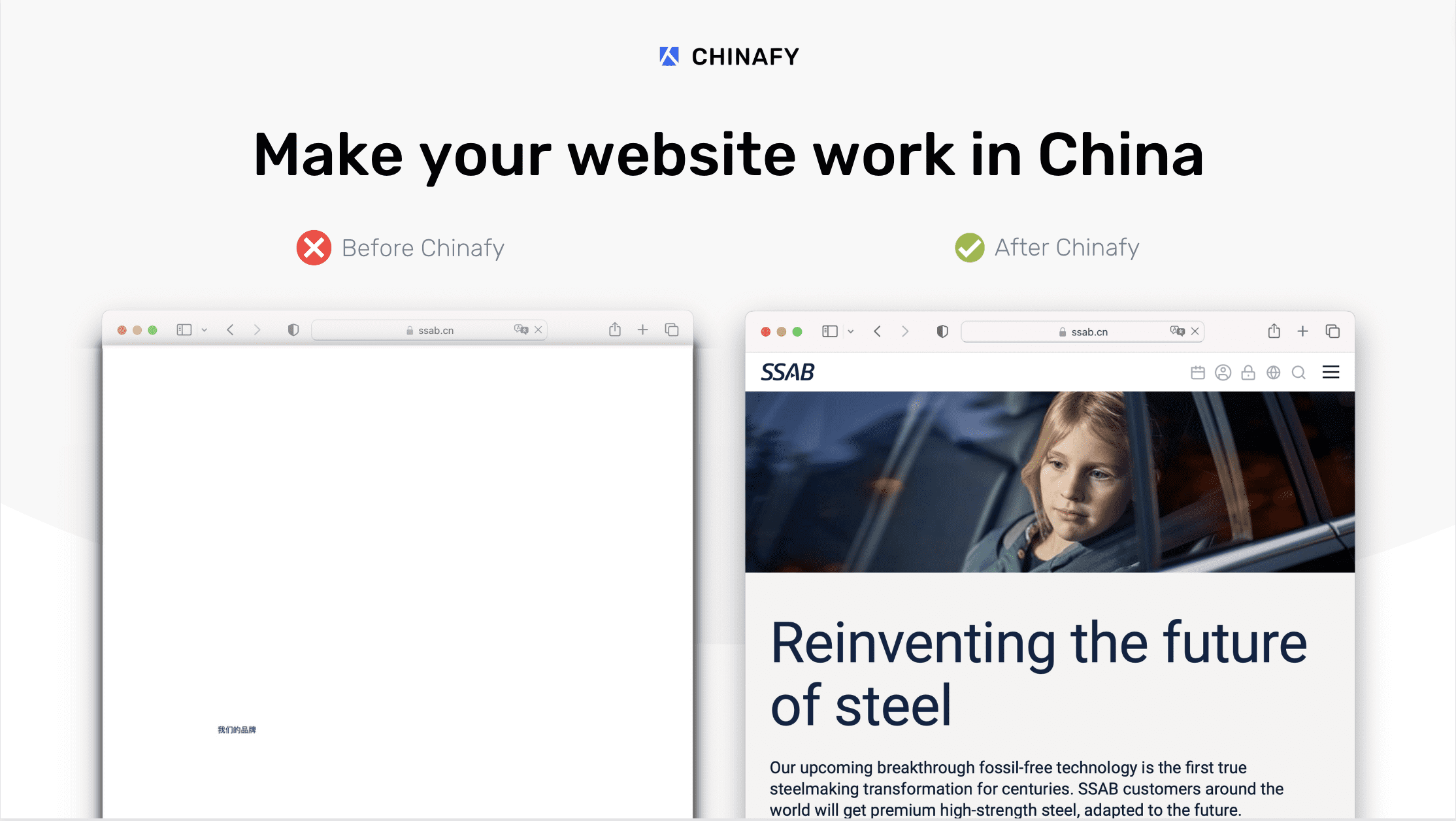
Source: Chinafy
Chinafy is based on several key technologies and strategies to optimize website performance in China. These include:
China Website Compatibility: Chinafy is the only platform that identifies and resolves issues stemming from third-party resources on a website, when accessed from China.
Content delivery network (CDN): Chinafy leverages both onshore* or fast near-China CDNs for additional acceleration of website content delivery, ensuring faster load times and better website performance for Chinese users. Users have the option to use their own CDN, select from Chinafy’s partners or have Chinafy entirely manage the process and select whichever CDN is performing best at a given time. Learn more about Chinafy vs. CDNs.
Web performance optimization (WPO): Chinafy employs a range of techniques and tools to optimize website performance, including compressing images and other files, minifying code, and improving caching.
Localization & Marketing: Chinafy offers localization and marketing services to help businesses translate and adapt their website content to better resonate with Chinese audiences via their growing ecosystem of verified expert partners whose services include Baidu Paid Ads, WeChat development, and more.
*Onshore CDNs are only available to companies that fulfill the local requirements, including an ICP license.
Chinafy for Heroku Websites
Using Chinafy for web optimization can provide a range of benefits for Heroku websites, particularly when it comes to third-party resources. Here are three ways that Heroku websites can benefit from using Chinafy for web optimization.
Functionality: Chinafy bolts onto a website to optimize both primary and third party resources.
Primary resources are optimized using a Chinafy-verified fully-managed, near-China content delivery network (or onshore CDN depending on whether local requirements are met).
Third-party resources are files or scripts loaded from external domains, while primary resources are files that are hosted on the same domain as the website. CDNs and hosting providers cannot address the optimization of third party resources as they do not have control over them, hence the need for services like Chinafy that specialize in optimizing third party resources for China. The method of optimisation for each of these third party resources will depend on the resource itself. For example, some may require all-together removal as inaccessible/blocked resources (i.e. Facebook embeds), while others would benefit from replacement by a local China equivalent (i.e. videos).
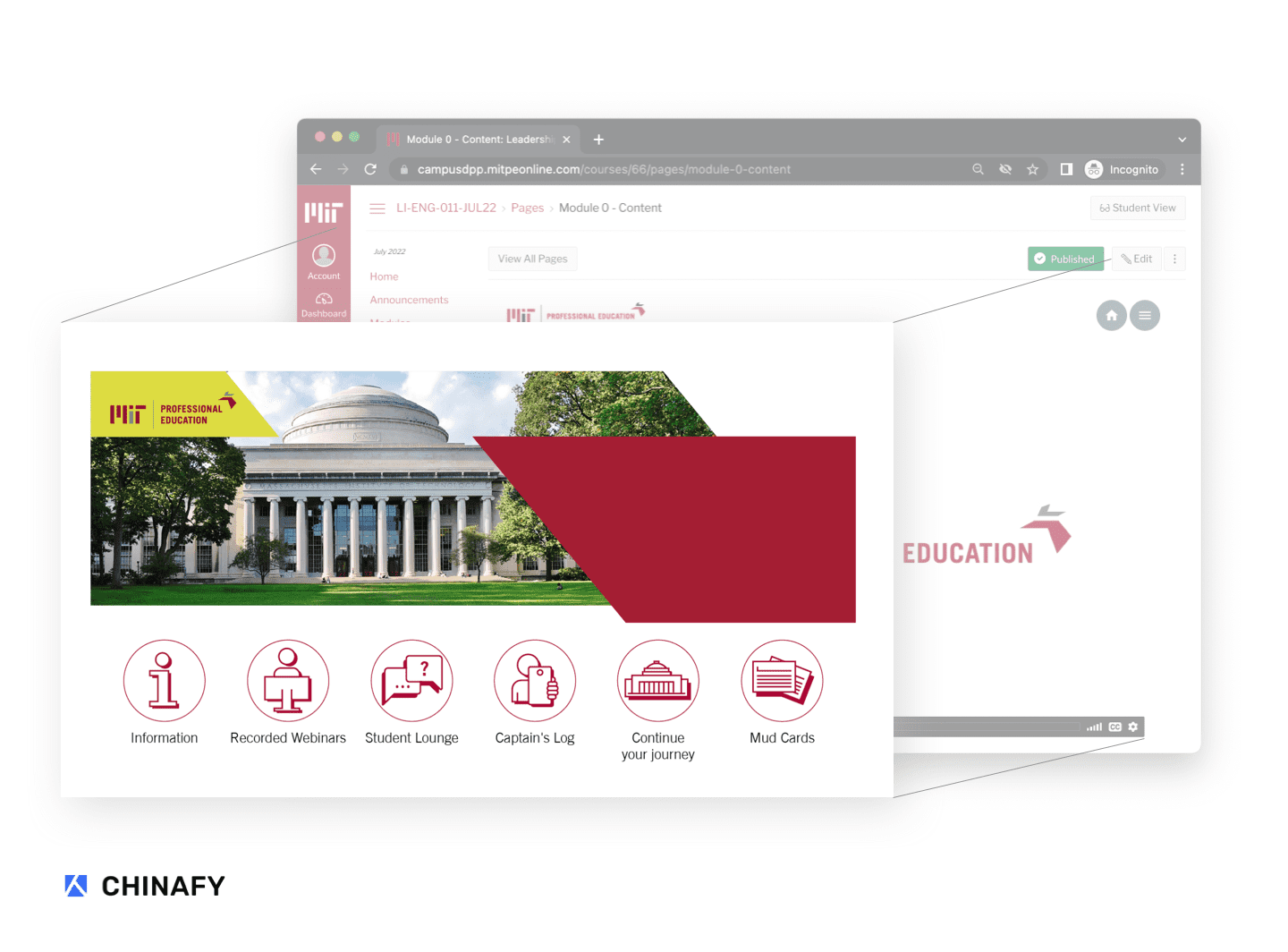
Global Alumni used Chinafy to optimize their website built with third-party resources such as Eludidat and Vimeo which did not render in China without Chinafy. After using Chinafy, their website for MIT Professional Education was fully interactive in China. (Source: Chinafy)
Faster loading speeds: Collectively, by resolving the issues that stem from both this not only improves the overall loading speed of the website but thereby also affects the user experience and reduces bounce rates.
For example, the Banyan Tree Hotel Group used Chinafy to achieve a much stabler, consistent loading time in China.
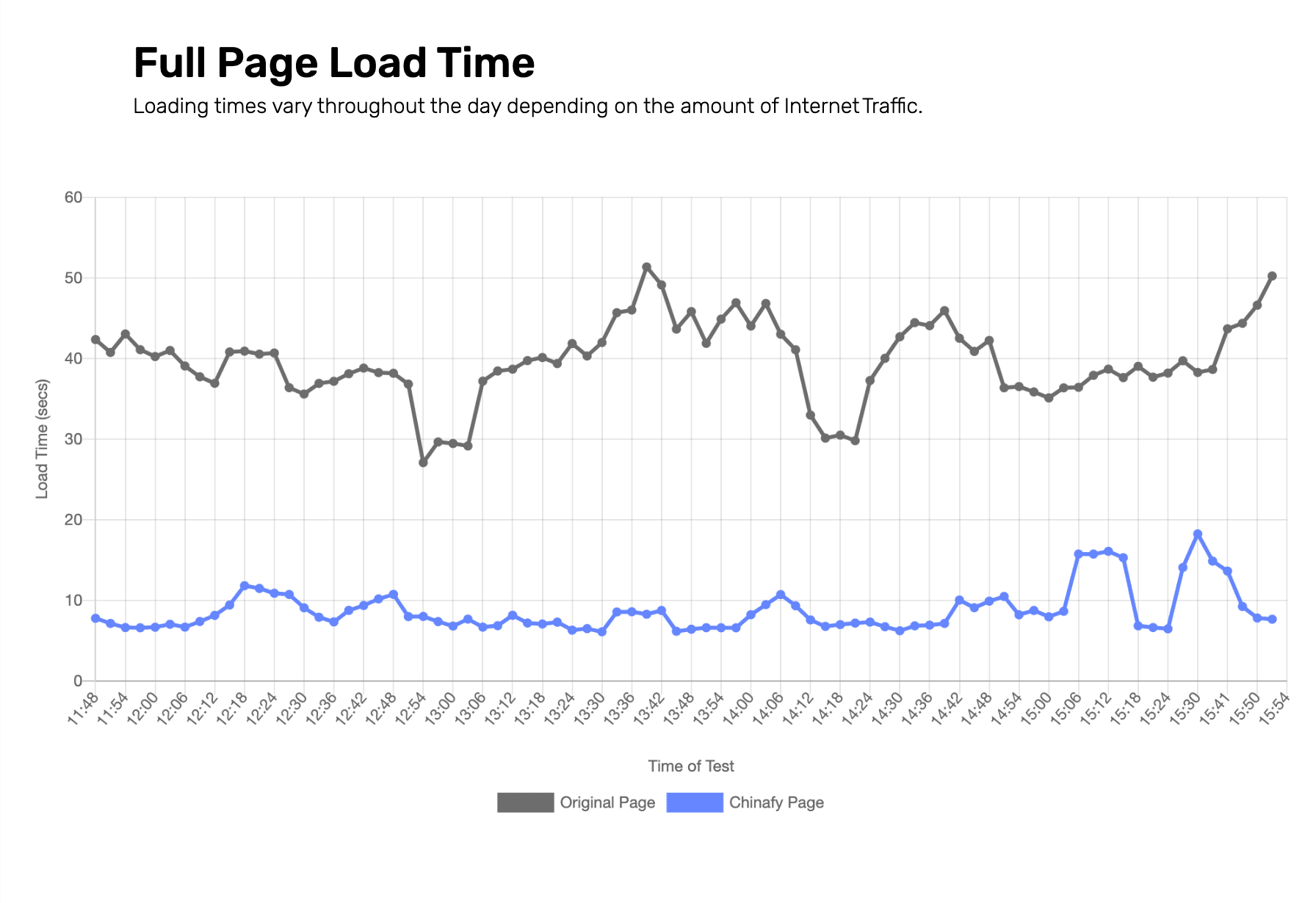
The above chart is a 4-hour time series analysis that compares the Banyan Tree Hotel website (in grey) alongside its Chinay version in Beijing (in blue). (Source: Chinafy)
Improved reliability & deliverability: Inaccessible resources not only “break” the website but inhibit other resources from loading properly. By combining Chinafy’s web compatibility suite and a fully managed content delivery network (CDN), Chinafy can ensure that the website as a whole is delivered quickly and reliably to users in China. This can reduce the risk of website downtime and increase website reliability.
Do you have a Heroku website?
Run your website through a free visual speed test from China!
Submit your website via our Get Started Form
Contact enterprise@chinafy.com to learn more



1 - Expected post-Chinafy results






























